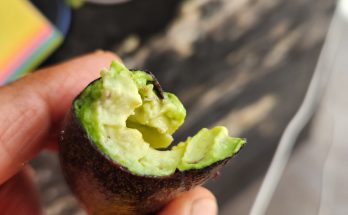By Bernardo Moreno
Next Sunday, April 23, is International Book Day. In the spirit of meeting its objective of encouraging reading, I’d like to recommend three books. These are novels that I read during my adolescence, and I still remember them fondly. The first is one by Dostoyevsky; I read almost all his novels. Every Dostoevsky book I read fascinated me. They stayed with me through the first time I gave up beer, began to meditate morning and night, distanced myself from friends, and became lonely. Second, a work by Hemingway, “The Old Man and the Sea” (I remember that Bukowski wrote that Hemingway would be the only writer he would fight). I read Hemingway on the beach in Sayulita. I had just separated from my first girlfriend. Third, a work by Douglas Adams, of whom I also read almost everything he wrote. He has pure good vibes. Maybe I wasn’t a teenager anymore, but thanks to him, I realized that God exists. And although Adams has no idea what’s going on, he just wants to have fun, like the rest of us.
“The Brothers Karamazov,” Fyodor Dostoyevsky, 1880
The development of the personality of each character is a hallmark. It is a deeply psychological and philosophical novel. For Sigmund Freud, among many other authors who have analyzed it, it is one of the most important literary works. It is the story of the brothers and their disinterested, opportunistic, and partying father named Fyodor. Dmitry is the older brother and the only child from Fyodor’s first marriage. Dmitry is a hedonist, a gambler, an ex-military man, and he likes the same woman as his father. Iván is the second son, but the first from the second marriage. He is an atheist and rationalist and has a bad character. At first, he has a poor relationship with the other brothers and a deep hatred for his father. Alexei is the younger brother. He is a scholar of theology and part of a monastery. He tries to understand his father, without success. Smerdyakov is a boy who is thought to be an illegitimate son and works as a cook and servant in the house. Along with the other characters, Dostoevsky creates a tense plot between the children and the father. Dmitry and Fyodor are in love with the same woman. Iván is in love with Dmitry’s fiancée, who has forgiven all the infidelities of her soon-to-be husband. Alyosha and Iván have constant disagreements, as one is religious and the other an atheist.

“The Old Man and the Sea,” Ernest Hemingway, 1952
Hemingway’s last fiction novel was published while he was alive in 1952. The following year he won the Pulitzer Prize and the Nobel Prize for Literature. “The Old Man and the Sea” is the story of a fisherman named Santiago who has been in a terrible streak for years. He tries one more time and sets sail on the high seas. This time, he manages to catch the largest marlin fish in living memory and has a days-long battle at sea with the immense animal. He has memories of his life and his affection for Manolín, the boy he taught to fish, who is no longer by his side. The fish finally gives way, and the old man manages to tie it to the side of his boat. Soon the sharks arrive, and Santiago manages to kill some of them but not enough. Little by little they eat the fish, and he returns defeated to the port. When people observe the skeleton of the fish tied to the old man’s boat, they realize the great size of the animal and how valuable it would have been. Manolín tells the old man that he will go fishing with him again. Even though the boy’s parents won’t let him, Santiago, and Manolin go. Never admit defeat is the message of this book.

“The Hitchhiker’s Guide to the Galaxy,” Douglas Adams, 1979
Arthur Dent lives quietly in the London suburbs until he learns that his house will have to be demolished as a bypass is planned there. In a bar, he talks with his friend Ford Prefect, who informs him that an intergalactic highway will pass through Earth, and Earth will have to be destroyed. Prefect suggests that they catch a ride on one of the Vogon fleet ships that are appearing in the sky. Prefect has lived on Earth for 15 years, working on the Hitchhiker’s Guide to the Galaxy, wanting to amend the article that says Earth is harmless, replacing it with Earth is fundamentally harmless. Upon gaining access to the Vogon ship, Ford inserts a Babel Fish into Dent’s ear. The Babel Fish feeds on sounds and converts them into brain waves that allow its host to understand all the dialects in the universe. Being discovered illegally on the ship, the Vogons, who oversee building the intergalactic highway, condemn them to listen to the captain’s poetry. According to the galactic hitchhiker’s guide, it is the third worst poetry in the universe. After surviving and having misinterpreted poetry, they are thrown into outer space and luckily rescued by The Heart of Gold, the fastest spaceship in the galaxy due to its improbability field, and that at that time was being held hostage by Zaphod Beeblebrox, former president of the galaxy. He has two heads, and his partner Trillian was previously called Tricia McMillan, who also is terrestrial. On the ship is Marvin who is a melancholic, sad, and unhappy android. Also aboard is Eddie, the ship’s computer. This is where this epic galactic adventure begins. “The Hitchhiker’s Guide to the Galaxy” is the first in a series of six books.




